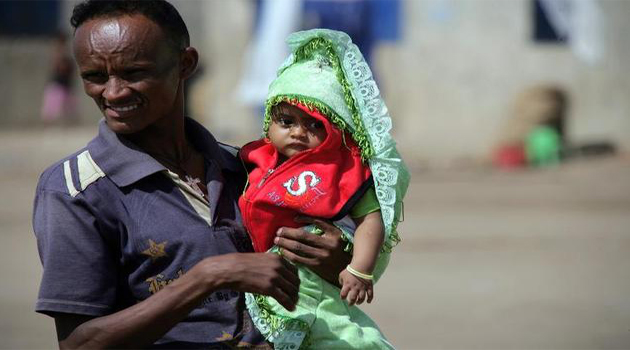GENEVA, Switzerland, June 8 – Eritrea’s government has systematically committed crimes against humanity in the last 25 years, with top officials bearing direct responsibility, UN investigators said Wednesday.
The second report of the United Nations Commission of Inquiry (COI) on human rights also said there was a “rule of law vacuum” in the secretive Horn of Africa nation.
Independent UN investigators found vast evidence that Eritrean officials, especially in the security services, were guilty of enslavement, enforced disappearances, torture, rape and murder, among other offences.
These were perpetrated to terrify and control the civilian population, while crushing opposition, the COI said.
“Crimes against humanity have been committed in a widespread and systematic manner in Eritrean detention facilities, military training camps and other locations across the country over the past 25 years,” the commission said in a press release.
“Particular individuals, including officials at the highest levels of state, the ruling party the People’s Front for Democracy and Justice and commanding officers bear responsibility for crimes against humanity,” it said.
The UN’s trenchant condemnation comes less than three weeks after Eritrea marked 25 years of independence from its bitter enemy Ethiopia.
The 1991 split between the two nations followed a three-decade independence war, which saw Eritrean rebels battling far better-equipped Ethiopian troops backed first by Washington and then by the Soviet Union.
Since independence, the Red Sea nation has been rigidly controlled by President Isaias Afwerki, a former rebel leader.
The country ranks below North Korea as the worst in the world for press freedom, according to Reporters Without Borders.
International prosecutions
Lead investigator Mike Smith said Isaias presided over a state with no functioning democratic institutions.
“This has created a governance and rule of law vacuum, resulting in a climate of impunity for crimes against humanity,” he said in a statement.
Smith said there was no chance that Eritrea’s judicial system could bring the perpetrators to justice through a legitimate trial.
He therefore called on world nations to use other means, including the International Criminal Court in The Hague to ensure accountability.
Since it was established in June 2014, the COI has interviewed more than 800 Eritrean exiles and received more than 45,000 written submissions, some defending Eritrea’s record.
Among the major violations documented is “the indefinite duration of military and national service programmes,” which many sited as the reason to flee.
Eritrea has repeatedly denied UN investigators access to the country.
According to the United Nations, around 5,000 Eritreans risk their lives every month to flee the country.
Refugees from the repressive Red Sea state have in recent years made up one of the largest contingents of people risking the dangerous journey to seek a new life in Europe.
With an annual per capita gross national income of $480, Eritrea is one of the world’s poorest nations, according to the World Bank.










































